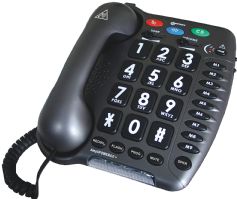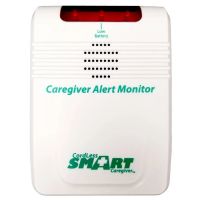 Written by Heather Collins, MSN, RN, CNOR
Written by Heather Collins, MSN, RN, CNOR
As the world's population ages, it becomes increasingly important to address the unique health challenges faced by the elderly. In fact, the World Health Organization estimates that by 2050, the number of people aged 60 and over will double, reaching nearly 2.1 billion. This growing demographic highlights the need to find effective solutions for common health problems that the elderly face, allowing them to maintain their quality of life and independence for as long as possible. This article will discuss some of these health issues, including arthritis, hearing loss, injuries from falls, Alzheimer's, and dementia, as well as various solutions and aids that can make a significant difference in the lives of seniors.
Many seniors desire to age in place, enjoying the familiarity and comfort of their homes while ensuring their safety and well-being. With careful planning and consideration from caregivers, seniors can receive proper care at home. The key lies in selecting the appropriate tools and resources that not only maintain the safety of elderly individuals but also enable them to manage their health conditions and retain their independence. In the subsequent sections, we will discuss various tools and solutions specifically tailored to meet the diverse needs of seniors. By adopting the right approach, seniors can receive comprehensive care, allowing them to age gracefully and securely within their homes.
Arthritis is a common health condition that causes joint pain, stiffness, and decreased mobility. Over 54 million people are diagnosed with arthritis, making it the number one primary cause of disability. While it can develop at any age, osteoarthritis, and rheumatoid arthritis are the most common forms that seniors face.
Osteoarthritis is caused by the gradual deterioration of the protective cartilage that cushions the ends of bones, resulting in pain and inflammation. This degenerative process typically occurs over time due to aging, injury, or repetitive joint stress. Osteoarthritis can affect many joints, including the hip, knee, hands, and spine. This condition tends to worsen over time and can lead to difficulties in performing activities of daily living.
Rheumatoid arthritis, on the other hand, is an autoimmune disorder in which the body's immune system mistakenly attacks the lining of the joints, causing inflammation, pain, and potential joint damage. This condition may also impact other organs, such as the heart, lungs, skin, and vascular system. Rheumatoid arthritis differs from osteoarthritis in that it causes swelling that damages the lining of the joints and is not caused by wear and tear.
 | Hot and Cold Therapy System with 5 Preset Timing Options - ThermaZone View Product |
Heat and cold therapy are effective, non-invasive methods for managing arthritis-related pain and stiffness. Individuals can experience rapid relief and improved joint function by alternating between hot and cold applications. Heat therapy, which dilates blood vessels and promotes relaxation, can alleviate joint stiffness, while cold therapy, with its vasoconstrictive effect, can reduce inflammation and numb pain. Individuals can target the affected areas by utilizing packs or pads specifically designed for this purpose, providing an accessible and efficient means of managing their arthritis symptoms at home.
Recommended: ThermaZone Hot and Cold Therapy System
 | Thumb and Wrist Brace Splint for Arthritis and Carpal Tunnel View Product |
Braces and splints are valuable tools in arthritis management, providing much-needed support and stabilization to affected joints. These aids come in various forms, such as knee supports and carpal tunnel splints, specifically designed to address the unique challenges faced by arthritis patients. By offering external support and restricting excessive movement, braces and splints can alleviate pain, reduce inflammation, and promote proper joint alignment. Furthermore, these aids can help prevent further joint damage, enabling individuals to maintain their daily activities comfortably and confidently. Braces and splints are essential to a comprehensive arthritis treatment plan, contributing to improved overall joint health and functionality.
Recommended: Thumb and Wrist Brace Splint for Arthritis and Carpal Tunnel
 | Lever Door Knob Latch Handle Extender - Pack of 2 View Product |
Daily living aids significantly enhance the quality of life for individuals dealing with arthritis by simplifying everyday tasks and reducing discomfort. These aids come in various forms, such as reacher/grabber tools, doorknob extensions, and easy-use utensil grips, specifically designed to address the challenges posed by joint pain and stiffness. By offering practical solutions and tailored support, daily living aids enable arthritis patients to maintain their independence and engage in activities with less pain and stress. Incorporating these assistive devices into daily routines can significantly improve overall well-being, allowing individuals to navigate their daily lives more easily and confidently.
Recommended: Lever Door Knob Latch Handle Extender - Pack of 2
Hearing loss is a prevalent health condition characterized by a diminished ability to hear sounds, ranging from mild to profound impairment. Individuals with hearing loss may have trouble understanding speech, perceiving high-pitched sounds, or discerning noises in noisy environments. This condition can affect one or both ears and may develop gradually over time or suddenly, depending on the cause.
There are several potential causes of hearing loss, including aging, exposure to loud noises, infections, genetic factors, and certain medications. Hearing loss can be categorized into three main types: conductive, sensorineural, and mixed. Conductive hearing loss occurs when an outer or middle ear issue, such as a blockage or damage, prevents sound from reaching the inner ear.
On the other hand, sensorineural hearing loss is caused by damage to the inner ear or the auditory nerve, often resulting from aging, noise exposure, or genetic factors. Mixed hearing loss is a combination of both conductive and sensorineural issues. Regardless of the type, early identification and appropriate intervention are crucial in managing hearing loss and preventing further deterioration of hearing abilities.
Hearing aids are remarkable devices designed to enhance the listening experience for individuals with hearing loss. These technological marvels come in various shapes and sizes, each tailored to meet specific needs and preferences. Though they may differ in appearance and features, all hearing aids share the common goal of amplifying sounds and improving the user's overall hearing. These devices can significantly boost speech comprehension, environmental awareness, and social interactions by capturing, processing, and delivering sound to the ear. To explore the diverse world of hearing aids and discover which option best suits your needs, delve deeper by visiting our comprehensive guide.
Recommended: Otofonix Rechargeable REVIVE Hearing Aids with Built-in Bluetooth
 | Geemarc AmpliPower 60 Telephone for the Hearing Impaired View Product |
Amplified phones are a game changer for people who have hearing loss, giving them a much-needed communication lifeline. These phones are specifically designed for the hard of hearing, with amplified speakers that ensure clarity during conversations and ring tones that are easier to detect. No more straining to hear your loved ones or missing important conversations - amplified phones make communication more accessible and enjoyable. With these innovative devices, you can stay connected to the world, engage in heartfelt conversations, and rediscover the joy of effortless communication. Explore our dedicated selection of hearing-impaired telephones to find the ideal amplified phone for your needs.
Recommended: Geemarc AmpliPower 60 Telephone for the Hearing Impaired
 | Pocketalker Ultra Personal Sound Amplifier View Product |
Personal listening systems are your portable companions for amplified sound, making staying connected and engaged with the world around you easier than ever. These handheld devices are multi-purpose tools that improve the audio experience, whether listening to a conversation, music, or watching TV. With their user-friendly design and customizable settings, personal listening systems put the power of clear sound in the palm of your hand. These adaptable devices are ideal for those looking for a better listening experience in various settings. Are you ready to find the ideal match for your lifestyle? Discover our extensive collection of personal listening systems and improve your auditory experience today.
Recommended: Pocketalker Ultra Personal Sound Amplifier
Injuries from falls are a significant concern, particularly among older adults and individuals with mobility challenges. In fact, one out of five falls results in serious injuries. Given the potential severity of these injuries, it is crucial to be proactive in preventing falls and creating a safer environment for at-risk individuals. Fall prevention strategies can take many forms, from improving balance and strength through exercise to making home modifications that reduce hazards. By adopting reliable and effective fall prevention measures, we can significantly decrease the risk of injury, enhance overall safety, and promote a greater sense of confidence and independence for those navigating their day-to-day lives. Discover some of the most dependable fall prevention solutions below and take a proactive step toward a safer, more secure future.
 | Smart Caregiver Patient Monitor System with Motion Sensor View Product |
Patient monitoring systems provide invaluable peace of mind for caregivers by keeping a watchful eye on their loved ones, ensuring their safety and well-being. These innovative systems allow caregivers to track the patient's whereabouts, alerting them if the individual leaves the designated safe area. This level of monitoring is particularly useful in cases where the patient may be prone to wandering, disorientation, or falls. By using patient monitoring systems, caregivers can be confident that their loved ones are secure within the safety of their home environment, while patients can maintain a sense of independence. These tools promote the well-being of the individual being monitored and offer reassurance and support to caregivers, making them a vital component of comprehensive care plans.
Recommended: Smart Caregiver Patient Monitor System with Motion Sensor
 | Mobb 360 Degree Swivel Shower Chair with 300 lbs. Weight Capacity and Rubber Leg Tips View Product |
Shower seating solutions are a vital addition for individuals with impaired mobility, making the often-challenging task of showering safer and more comfortable. Showers can be particularly hazardous for those with mobility limitations due to the risk of slips and falls on wet surfaces. Shower seating options, such as benches and shower commode chairs, provide essential support and stability during bathing, significantly reducing these risks. In addition to enhanced safety, these seating solutions empower users by offering increased dignity and independence, allowing them to maintain their personal hygiene confidently.
Recommended: Inno Swivel Shower Chair
Safety handles and grab bars are practical and cost-effective solutions for enhancing safety in areas prone to fall hazards, such as getting in and out of the bathtub. These sturdy supports offer much-needed stability and assistance in navigating challenging spaces, allowing individuals to maintain their independence while minimizing the risk of falls. Generally inexpensive and easy to install, safety handles and grab bars are essential to a secure and accessible home environment, promoting confidence and well-being for those with mobility limitations.
Recommended: Norco Low Profile Wall Mounted Grab Bar | Shower Standing Handles
Alzheimer's, a neurodegenerative condition accounting for up to 80% of dementia cases, is marked by progressive cognitive decline. While dementia is a general term for mental decline rather than a specific disease, Alzheimer's is the most common form of dementia. Symptoms include memory loss, difficulty in problem-solving, disorientation, and changes in mood or behavior. This condition results from the buildup of abnormal proteins in the brain, leading to the death of brain cells. The exact cause of Alzheimer's and other dementia-related conditions remains unclear, but factors such as aging, genetics, and lifestyle play a role in their development.
 | Skil-Care Door and Window Alarm View Product |
Bed and door alarms are invaluable tools for caregivers, offering crucial alerts when a patient attempts to exit the bed or wanders. These alarms enhance safety by reducing the risk of dangerous situations and provide peace of mind for caregivers, promptly notifying them of a patient's movements. This is particularly important for those with Alzheimer's or dementia who may be prone to disorientation. By integrating bed and door alarms into care plans, caregivers can effectively mitigate risks and maintain a secure environment for their loved ones, promoting overall well-being and confidence.
Recommended: Skil-Care Door and Window Alarm
 | Broda Latitude Pedal Wheelchair (Rocking) (48R) View Product |
Rocking chairs offer a calming and therapeutic effect for individuals with Alzheimer's or dementia. The gentle, rhythmic motion provides comfort and relaxation, promoting well-being. Beyond traditional rocking chairs, innovative rocking wheelchairs are available, combining the soothing benefits of rocking with enhanced mobility. These versatile seating options cater to a wide range of needs, fostering an improved quality of life and overall comfort for those affected by cognitive decline.
Recommended: Broda Latitude Pedal Wheelchair (Rocking) (48R)
 | Twiddle Sport Fidget Toy View Product |
Sensory engagement tools, such as puzzles, fidget toys, and blankets, offer a wide range of affordable products designed to stimulate and engage individuals with cognitive decline. These tools promote sensory stimulation and interaction, providing valuable benefits to patients' daily well-being. By incorporating these accessible and cost-effective resources into care plans, caregivers can enhance the quality of life for their loved ones, promoting cognitive engagement and overall mental and emotional well-being.
Recommended: Twiddle Sport Fidget Toy
In conclusion, as our aging population continues to grow, it becomes crucial to address the unique health challenges faced by the elderly and provide effective solutions for their care. From managing arthritis and hearing loss to preventing falls and supporting those with Alzheimer's and dementia, a wide range of tools and resources can significantly enhance seniors' quality of life and independence. By staying informed and implementing the right strategies, caregivers can ensure their loved ones receive the proper care and support they need to age gracefully and securely within the comfort of their own homes. For more valuable information and resources on caregiving and senior care, visit our Caregiver University site and continue your journey toward becoming a knowledgeable and effective caregiver.

Heather Collins, MSN, RN, CNOR
Heather is a registered nurse and freelance health writer with a Master's degree and over 24 years of nursing and leadership experience. Heather cares for patients of all ages in various healthcare settings, including inpatient acute care nursing, GI procedural nursing, cardiac lab, infertility clinics, pediatrics, and surgical services. Heather is dedicated to providing high-quality care and sharing reliable, evidence-based information that empowers people to make informed decisions about their and their loved ones' health.